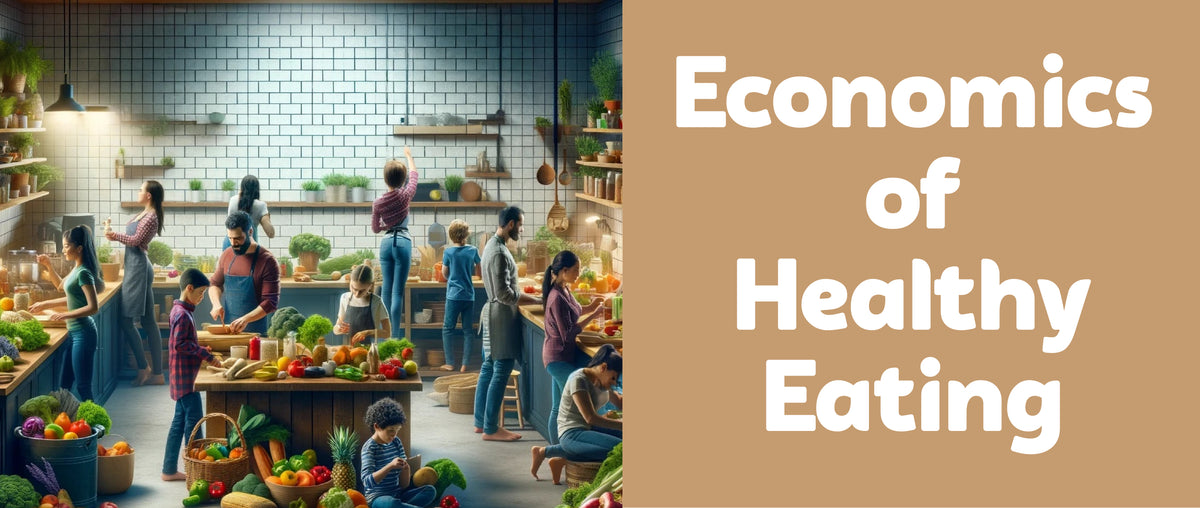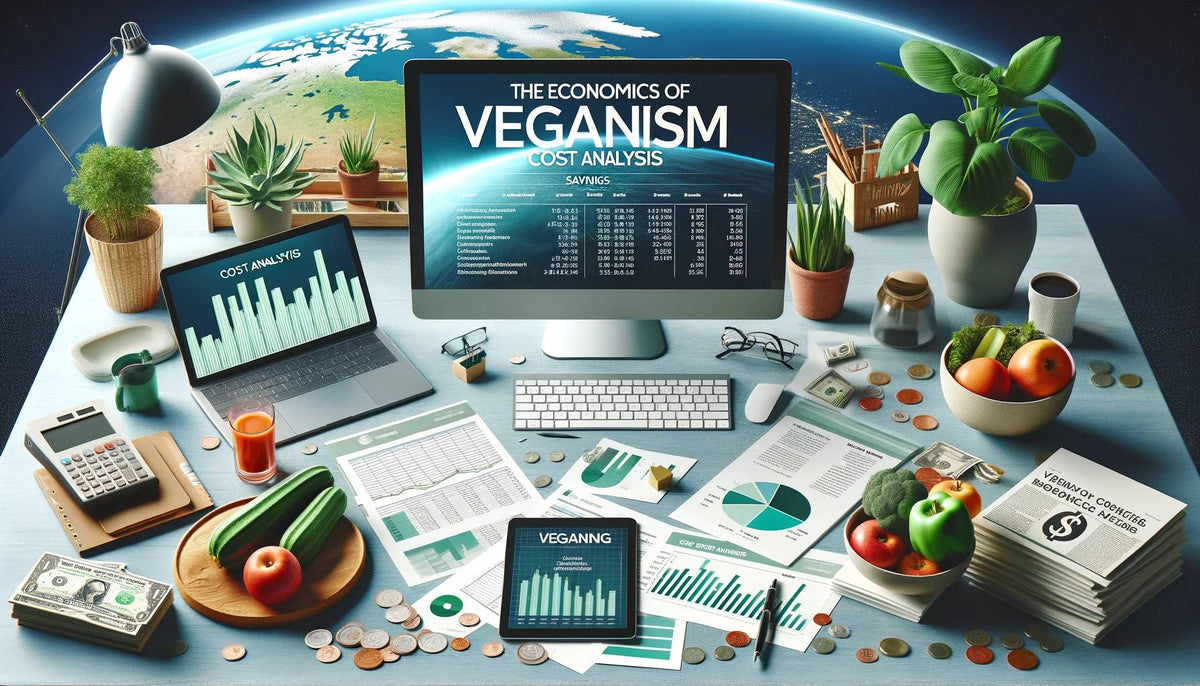The Economics of Healthy Eating
Understanding the economics of healthy eating is crucial for individuals, communities, and policymakers. The choices we make about what we eat not only affect our health but also have significant economic implications. This article delves into the economic benefits of healthy eating, compares the costs of healthy and unhealthy foods, and examines how government policies can promote healthier dietary habits.
Key Takeaways
- Healthy eating has significant economic benefits, including reduced healthcare costs and increased productivity.
- The cost of healthy foods can be offset by long-term savings in medical expenses.
- Government policies play a crucial role in promoting healthy eating habits through subsidies and taxes.
- Real-world examples demonstrate the economic benefits of healthy eating initiatives.
Economic Impact of Healthy Eating
Healthy eating can have profound economic impacts, both direct and indirect. By adopting a healthy diet, individuals can save money in various ways.
Direct Economic Benefits
Healthy eating leads to reduced medical expenses, as consuming nutritious foods lowers the risk of chronic diseases such as heart disease, diabetes, and obesity. This results in fewer medical bills and lower healthcare costs. Additionally, a diet rich in fruits, vegetables, whole grains, and lean proteins can reduce the need for medications.
Indirect Economic Benefits
Healthy eating increases productivity and workplace efficiency. Healthy employees are more productive, take fewer sick days, and have higher energy levels. Moreover, a balanced diet contributes to better mental health, reducing costs associated with mental health treatments and increasing overall well-being.

Cost Analysis of Healthy vs. Unhealthy Foods
One common misconception is that eating healthily is more expensive. However, when considering the long-term benefits and costs, healthy eating proves to be economically advantageous.
Price Comparison
Healthy foods such as vegetables, fruits, and whole grains can be cost-effective, especially when purchased in season or in bulk. In contrast, processed and fast foods may seem cheaper initially but can lead to higher medical costs over time due to their negative health effects.
| Food Type | Average Cost (per serving) | Long-Term Health Impact |
|---|---|---|
| Vegetables | $0.50 - $1.00 | Reduces risk of chronic diseases |
| Fast Food | $1.50 - $3.00 | Increases risk of obesity and diabetes |
| Whole Grains | $0.10 - $2 | Promotes heart health |
| Sugary Snacks | $0.10 - $2.00 | Contributes to dental and health issues |
Long-Term Cost Implications
Investing in a healthy diet reduces the likelihood of expensive medical treatments and improves quality of life. Conversely, the immediate savings on cheaper, unhealthy foods are offset by higher medical bills and lost productivity due to illness.
Healthcare Savings
The economic benefits of healthy eating extend beyond individual savings to national healthcare systems.
Reduced Medical Costs
A nutritious diet can prevent diseases that require costly treatments, leading to reduced medical expenses. Furthermore, healthy eating aids in managing chronic conditions, reducing the need for expensive ongoing care.
Impact on Public Health Systems
Healthier populations contribute to lower national healthcare expenditures by reducing the healthcare burden. With fewer diet-related illnesses, public health systems can allocate resources more effectively, leading to economic savings.
Also Read
Productivity and Workplace Benefits
Employers and businesses also benefit economically from promoting healthy eating among employees.
Improved Employee Health and Productivity
Healthy employees perform better and are more efficient in their tasks, leading to higher productivity. Additionally, a healthy diet results in fewer sick days, enhancing overall workplace productivity.
Reduced Absenteeism
Companies save on costs related to employee sick leave and health insurance premiums by encouraging healthy eating among employees. A healthy workforce is more motivated and engaged, leading to improved morale.
Economic Burden of Poor Nutrition
Poor nutrition has far-reaching economic consequences, impacting individuals and society.
Healthcare Costs Related to Poor Diet
Poor nutrition leads to higher incidence of chronic diseases, requiring expensive treatments and resulting in increased medical expenses. Additionally, unhealthy diets necessitate more medications to manage conditions like hypertension and diabetes.
Economic Impact of Diet-Related Diseases
Illnesses caused by poor nutrition reduce workforce productivity, leading to loss of productivity. Increased healthcare costs place a strain on national economies, diverting funds from other critical areas.
Government Policies and Economic Incentives
Subsidies for Healthy Foods
Subsidies make healthy foods like fruits, vegetables, and whole grains more affordable, increasing their accessibility. Lower prices encourage higher consumption of nutritious foods, promoting healthier dietary habits.
Tax Policies on Unhealthy Foods
Taxes on sugary drinks and junk food can reduce their consumption by discouraging unhealthy choices. Revenue from these taxes can fund public health initiatives promoting healthy eating, further supporting economic and health benefits.

Case Studies
Community Health Programs
Programs in schools and workplaces that promote healthy eating show significant improvements in health and economic outcomes. Successful initiatives lead to sustained health improvements and economic savings, demonstrating the effectiveness of promoting healthy dietary habits.
Country-Specific Examples
Countries like the Nordic nations and Japan provide excellent examples of the economic benefits of healthy eating. In the Nordic countries, investment in public health nutrition has resulted in lower healthcare costs and healthier populations. Similarly, Japan's traditional diet rich in vegetables and fish contributes to the country's high life expectancy and lower healthcare costs.
Challenges and Solutions
Barriers to Adopting Healthy Eating Habits
Many people perceive healthy foods as more expensive, which can be a barrier to adopting healthy eating habits. Additionally, limited knowledge about nutrition and healthy eating can prevent individuals from making healthier choices.
Strategies to Overcome These Barriers
Education programs can increase awareness about the benefits and affordability of healthy eating. Community support, such as local initiatives to provide access to affordable healthy foods, can also help individuals adopt healthier dietary habits.
Future Trends and Predictions
Emerging Trends in Healthy Eating
The growing interest in plant-based diets, such as veganism, can lead to economic shifts in the food industry. Additionally, the increasing demand for sustainable and organic foods impacts agricultural economics and promotes healthier dietary habits.
Economic Implications of Future Dietary Trends
Healthy food markets are expected to grow, creating new economic opportunities. Governments may adjust policies to support sustainable and healthy eating practices, further promoting economic and health benefits.
Conclusion
The economics of healthy eating demonstrate that investing in a nutritious diet has far-reaching benefits, including reduced healthcare costs, increased productivity, and overall economic savings. By promoting healthy eating through education, policy changes, and community support, we can achieve both better health outcomes and significant economic gains.
If you are a vegan, looking to dine something vegan in your city, check out our list of vegan restaurants in India.










